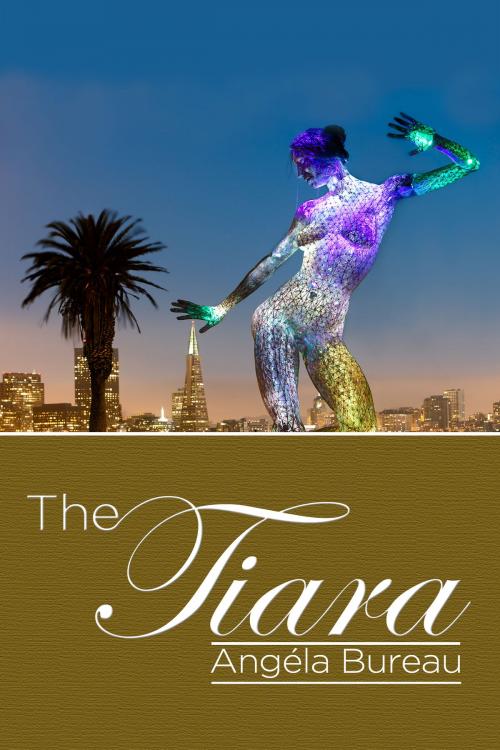| Author: | Angela Bureau | ISBN: | 9781301477302 |
| Publisher: | Angela Bureau | Publication: | July 5, 2013 |
| Imprint: | Smashwords Edition | Language: | English |
| Author: | Angela Bureau |
| ISBN: | 9781301477302 |
| Publisher: | Angela Bureau |
| Publication: | July 5, 2013 |
| Imprint: | Smashwords Edition |
| Language: | English |
Composed with a passion for the sublime and a quest to transgress the personal, actual, and imaginary, The Tiara is based on biographical facts, events, and experience in the life of the author, Angéla Bureau. Indeed, it emerged from her first “independent” year in the UK: it was written as a means of digesting certain challenging experiences and of healing her then turbulent soul.
Set mainly in London in the noughties, this captivating, twenty-first-century novel charts the formative experiences of Tamara, a Hungarian native-speaker who contemplates her earlier life in London where she endeavours to overcome loneliness and find her feet. Although intent on striving for independence, she rapidly becomes a victim of (self-) inflicted suffering through the development of a coerced, multi-cultural relationship with Diké, her familiar stranger, seducer, and, yet, would-be saviour.
With its psychoanalytical depth, The Tiara is somewhat reminiscent of Pechorin’s piquant introspection in Mikhail Lermontov’s famous, Modernistic, Russian novel, A Hero of Our Time (1840), for it penetrates, alternatingly, the minds of Tamara and Diké through self-reflection and psychological analysis. A testament to cross-cultural awareness, it is embedded in experiences endured not in the Caucasus, but in locations stretching from the UK, to East Central Europe, and back to West Africa. We are immediately immersed into the whirlpool of Tamara’s life, with flashbacks to her family and university environments in Szeged in South-Eastern Hungary and also to Diké’s recollections of his life-changing experiences among the Muslim Marabouts of Gambia and Sierra Leone.
Cruising through waves of consciousness and into the future on a ferry returning her to the Continent, Tamara is thrust into “transgressing the in-between”. Held captive for seven whole months in the arms of Diké, she is at last truly alive, liberated in seeing him for the eloquent, beguiling, masked seducer he really is. In attaining a higher level of self-awareness, evocative of Bertha Young’s epiphanies in Katherine Mansfield’s ‘Bliss’ (1923), she recalls: “My own life seemed more valuable than ever before. I was free to start living and learning to cherish [it]”.
Composed with a passion for the sublime and a quest to transgress the personal, actual, and imaginary, The Tiara is based on biographical facts, events, and experience in the life of the author, Angéla Bureau. Indeed, it emerged from her first “independent” year in the UK: it was written as a means of digesting certain challenging experiences and of healing her then turbulent soul.
Set mainly in London in the noughties, this captivating, twenty-first-century novel charts the formative experiences of Tamara, a Hungarian native-speaker who contemplates her earlier life in London where she endeavours to overcome loneliness and find her feet. Although intent on striving for independence, she rapidly becomes a victim of (self-) inflicted suffering through the development of a coerced, multi-cultural relationship with Diké, her familiar stranger, seducer, and, yet, would-be saviour.
With its psychoanalytical depth, The Tiara is somewhat reminiscent of Pechorin’s piquant introspection in Mikhail Lermontov’s famous, Modernistic, Russian novel, A Hero of Our Time (1840), for it penetrates, alternatingly, the minds of Tamara and Diké through self-reflection and psychological analysis. A testament to cross-cultural awareness, it is embedded in experiences endured not in the Caucasus, but in locations stretching from the UK, to East Central Europe, and back to West Africa. We are immediately immersed into the whirlpool of Tamara’s life, with flashbacks to her family and university environments in Szeged in South-Eastern Hungary and also to Diké’s recollections of his life-changing experiences among the Muslim Marabouts of Gambia and Sierra Leone.
Cruising through waves of consciousness and into the future on a ferry returning her to the Continent, Tamara is thrust into “transgressing the in-between”. Held captive for seven whole months in the arms of Diké, she is at last truly alive, liberated in seeing him for the eloquent, beguiling, masked seducer he really is. In attaining a higher level of self-awareness, evocative of Bertha Young’s epiphanies in Katherine Mansfield’s ‘Bliss’ (1923), she recalls: “My own life seemed more valuable than ever before. I was free to start living and learning to cherish [it]”.















